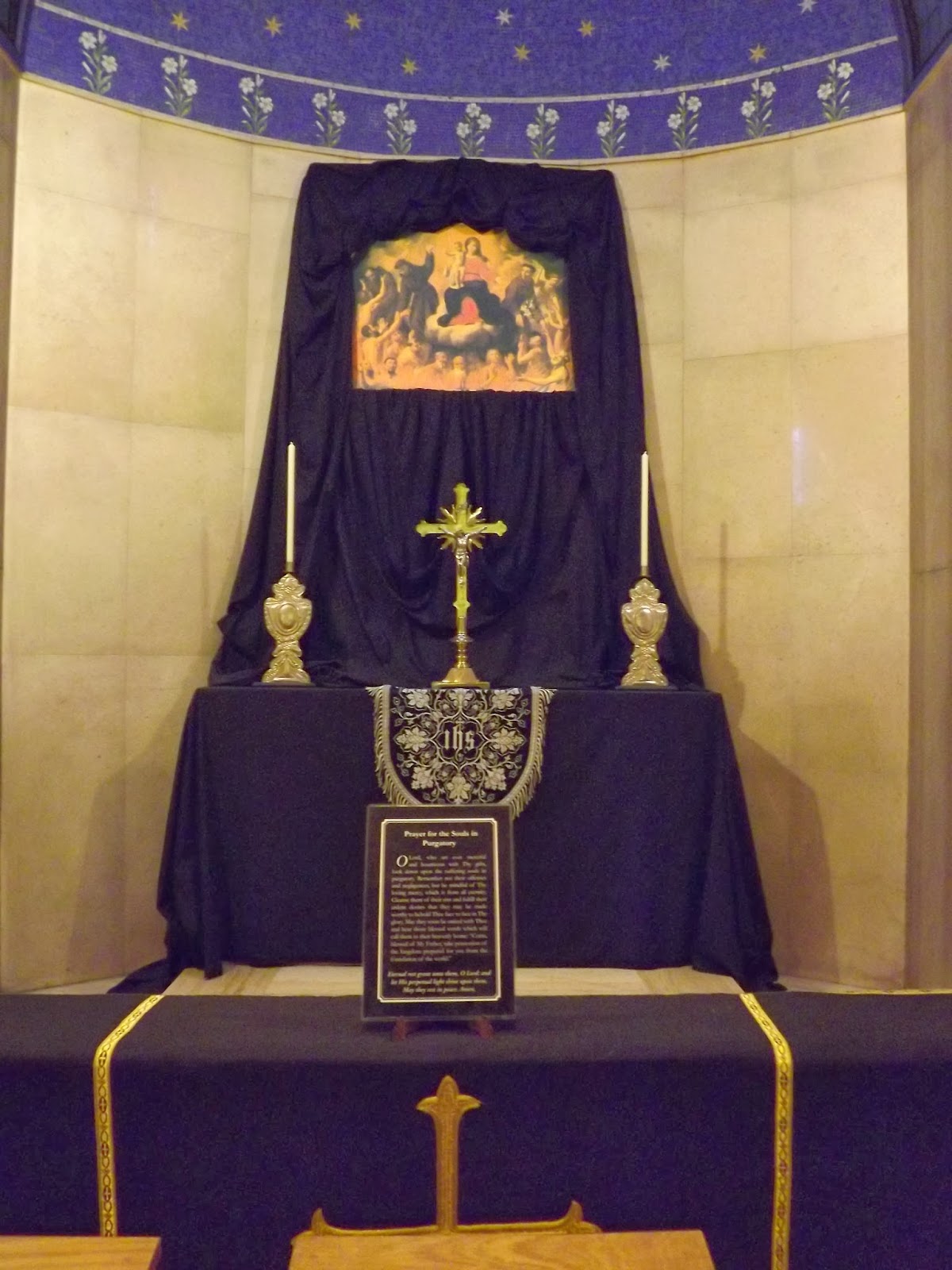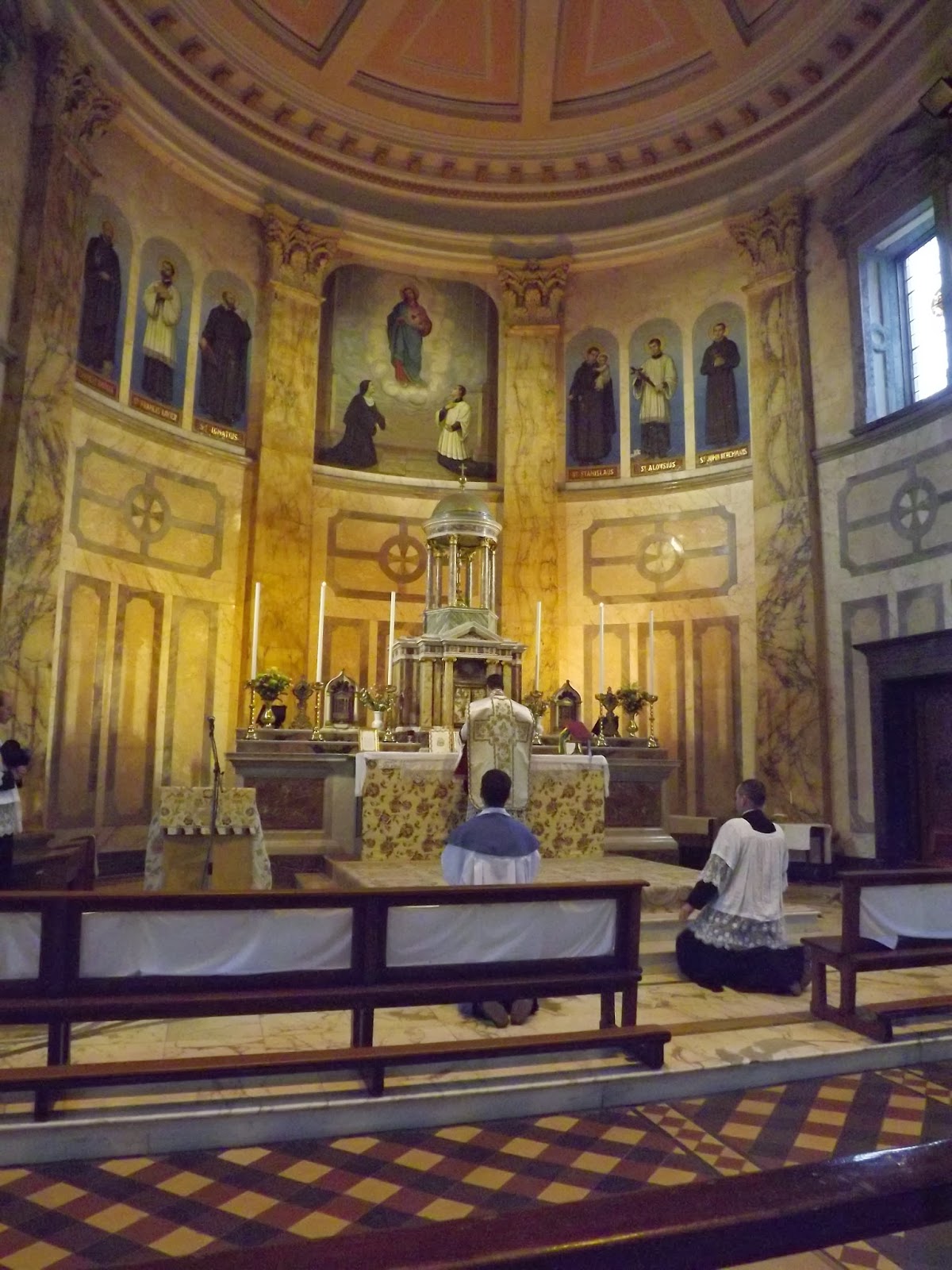February 19 is the commemoration of Saint Odhran, whom tradition remembers as Saint Patrick's charioteer and as a martyr who sacrificed his life for his master. Below is a prayer to Saint Odhran, taken from the 1941 edition of the Catholic prayerbook, Saint Anthony's Treasury. The prayer to Saint Odhran sounds like a product of the 19th-century nationalist revival, there is a strong emphasis on the land of Ireland but combined with an appreciation of the saint's heroism and a desire that his 'noble sacrifice' should not be forgotten:
Prayer to St. Odran
(St. Patrick's Charioteer)
(Who gave his own life to save that of his master)
Blessed Saint Odran, faithful and loyal to God and man! you whose name is almost forgotten by those who owe you an everlasting debt of gratitude, accept our poor thanksgiving, offered in the name of all Ireland, for your noble sacrifice of your life to save that of Ireland's Apostle. You had toiled in his service long and devotedly; you had learned what priceless service he could render to God and the Irish land and, when the moment came when he or you should die, by pagan hands, quickly and resolutely you laid down your life, that your master might live and labour for the Divine Master of all.
By your crown of martyrdom so gloriously won, by your centuries of endless peace and joy, we beseech you to look down on the toiling sons of Ireland and on those who try to guide them to their eternal rest. Look down on us all, O blessed Saint! for the love of him whose heart burned with love for Ireland, and pray that the blessing of the Triune God - Father, Son and Holy Ghost - may descend on us and remain with us for ever. Amen.
St. Anthony's Treasury - A Manual of Devotions (Anthonian Press, Dublin, 12th edition, 1941), 285-286.
Wednesday, 19 February 2014
Friday, 7 February 2014
Sunday, 2 February 2014
St. Brigid's Day Pilgrimage to Limerick
To honour St. Brigid of Kildare, the members and friends of St. Conleth's Catholic Heritage Association made a pilgrimage to the former Jesuit Church of the Sacred Heart in the Crescent, O'Connell Street, Limerick, for Holy Mass celebrated by Canon Wulfran Lebocq of the Institute of Christ the King, Sovereign Priest. Afterwards, we had the great privilege to hear a talk by Canon Lebocq. We sang the hymns to St. Brigid in Irish, English and Latin (Gabham Molte Bríde, Far Above Enthroned in Glory, and Christus in Nostra Insula. We were then given a tour of the Church and Residence to see the immense challenges faced by the Community in restoring the fabric of the building. Afterwards, members of the Institute of Christ the King Community joined us for a late lunch near the banks of the River Shannon.
The present church, the Sacred Heart church, is situated at the Crescent, on O'Connell Street. It was completed in 1868 and opened to the public on January 27 1869. The architect of this church was William Corbett and the church is in the parish of St Joseph's. According to Murphy, it was originally intended to dedicate the church to St Aloysius but when it was dedicated in 1869 it was called the Church of the Sacred Heart. The façade of the church is Classical/Grecian in design. It was renovated in 1900. There is a statue of the Sacred Heart above the porch. There are no aisles in the church but the nave has two rows of pews. The nave was extended in 1919.
There is a small medallion about 6 inches high of Our Lady and the Child on the front of the gallery, facing the altar.
There is an altar to Our Lady of Lourdes in the right transept. This altar was the first of its type in Ireland. It was designed by Mr. Goldie and was a gift from Thomas E. O'Brien. Above the altar to Our Lady of Lourdes, there is a mosaic of Our Lady and three Jesuit saints. These saints are (from left to right) St Robert Bellarmime, St Alphonsus and St Aloysius Bonzagh. Beside this altar, there is a statue of St Patrick.
In the left transept, there is an altar to St Joseph. A painting of St Joseph and the Infant Jesus forms the centerpiece of this altar. Above the altar, there is a mosaic of St Ignatuis Loyola and his first group of Jesuits.
The high altar was designed by William Corbett and is made from 22 types of precious marble. On each side of the altar there are statues of kneeling angels. The carving on the front of the high altar depicts a scene from the Last Supper. On the floor around the high altar, there are the symbols of the four writers of the Gospels. The angel represents Matthew, the lion represents Mark while Luke and John are represented by the bull and eagle respectively.
There are nine mosaics above the high altar. The central mosaic is of the Sacred Heart ascending in the presence of St Margaret Mary Alacoque and Blessed Claude la Colombiere. It is surrounded (from left to right) by depictions of St Francis Jerome, St Francis Borgia, St Francis Xavier, St Ignatius, St Stanislaus, St Aloysius, St John Berchmans and St Francis Regis. (From Limerick Diocesan History Project)



















































